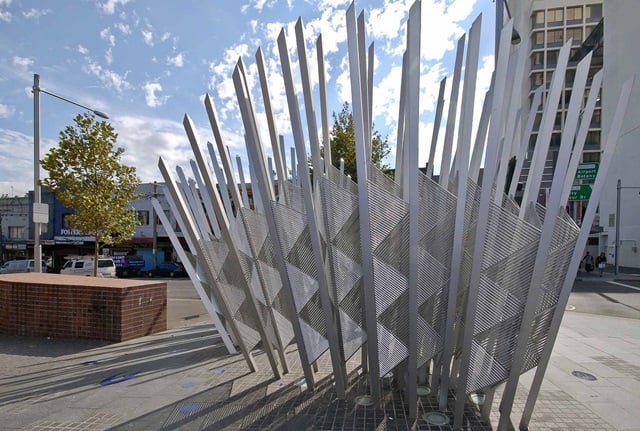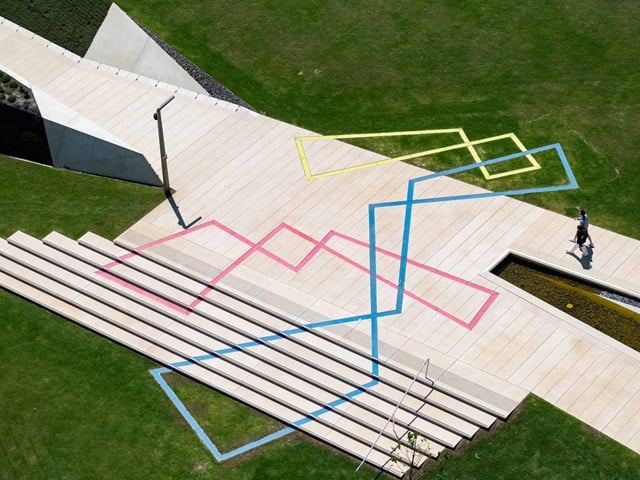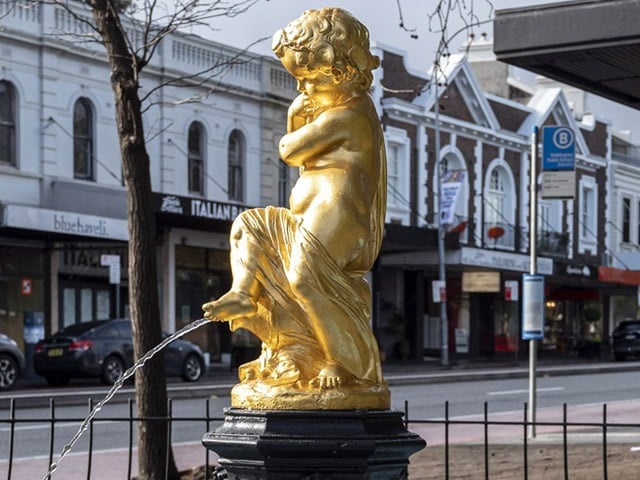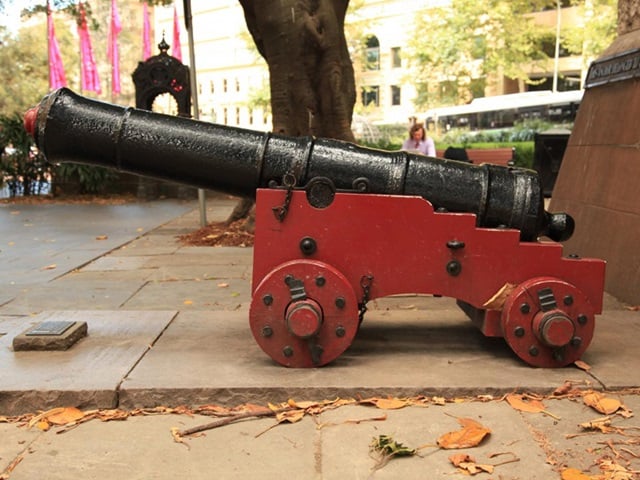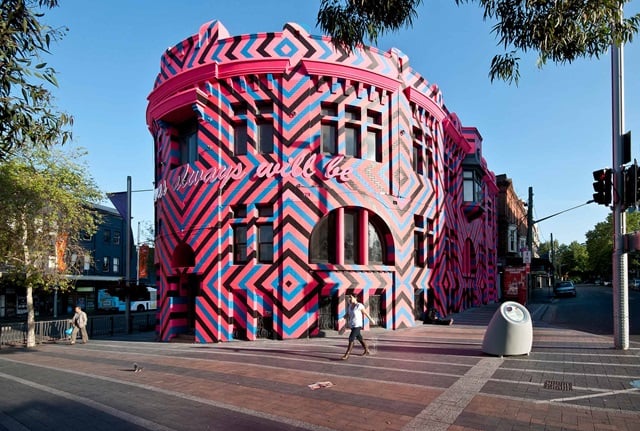


William Shakespeare, pen in hand, presides over a selection of his characters from atop a marble pedestal.
Artwork description
This bronze memorial statue features a life-sized figure of William Shakespeare, who stands with pen in hand atop a supporting marble pedestal. He is surrounded by a selection of characters including Romeo and Juliet, Othello, Portia and Falstaff.
It was unveiled in 1926 and an article in the Sydney Morning Herald described it ‘in the circular sweep between the Garden Palace Grounds and the Mitchell Library, at the hilltop where the long Figtree avenue descends to Woolloomooloo …’.
In 1959 the memorial was repositioned in Shakespeare Place opposite the State Library of NSW to make way for the Cahill Expressway. Initially when it was erected Shakespeare faced east, towards the ridge above Woolloomooloo but in 1959 it was turned to face west, looking toward the city.
Commissioned in the pre-war fervour for ‘Empire’ at a time when Australia was looking only to England for its cultural history, Shakespeare’s role as a man of ‘greatness’ was consolidated. Henry Gullet, president of the Shakespeare Society of NSW from 1904 to 1911 and key influencer in the project, regarded ‘Shakespeare as not only the typical man of letters, but also, and even more, the typical Englishman’. In that serene and somewhat enigmatic personage he saw ‘enshrined humour, tolerance, wider understanding of human nature, soundness of mind and body, and equal development of all his faculties that belong to the English race in all its exemplars’.
Artist
Sculptor Sir Edgar Bertram Mackennal (1863–1931) was the most successful Australian artist of his time. Born in Melbourne, he studied at the National Gallery School and Victorian Academy and in 1883 at the Royal Academy and British Museum in London.
Working mostly in Europe from 1882 Mackennal executed many private works and public monuments, and with the patronage of King George V became a leading civic sculptor in Britain. He was the first Australian to be elected an associate of the British Royal Academy, the only Australian to be elected to full Royal Academy membership and the first to be knighted.
